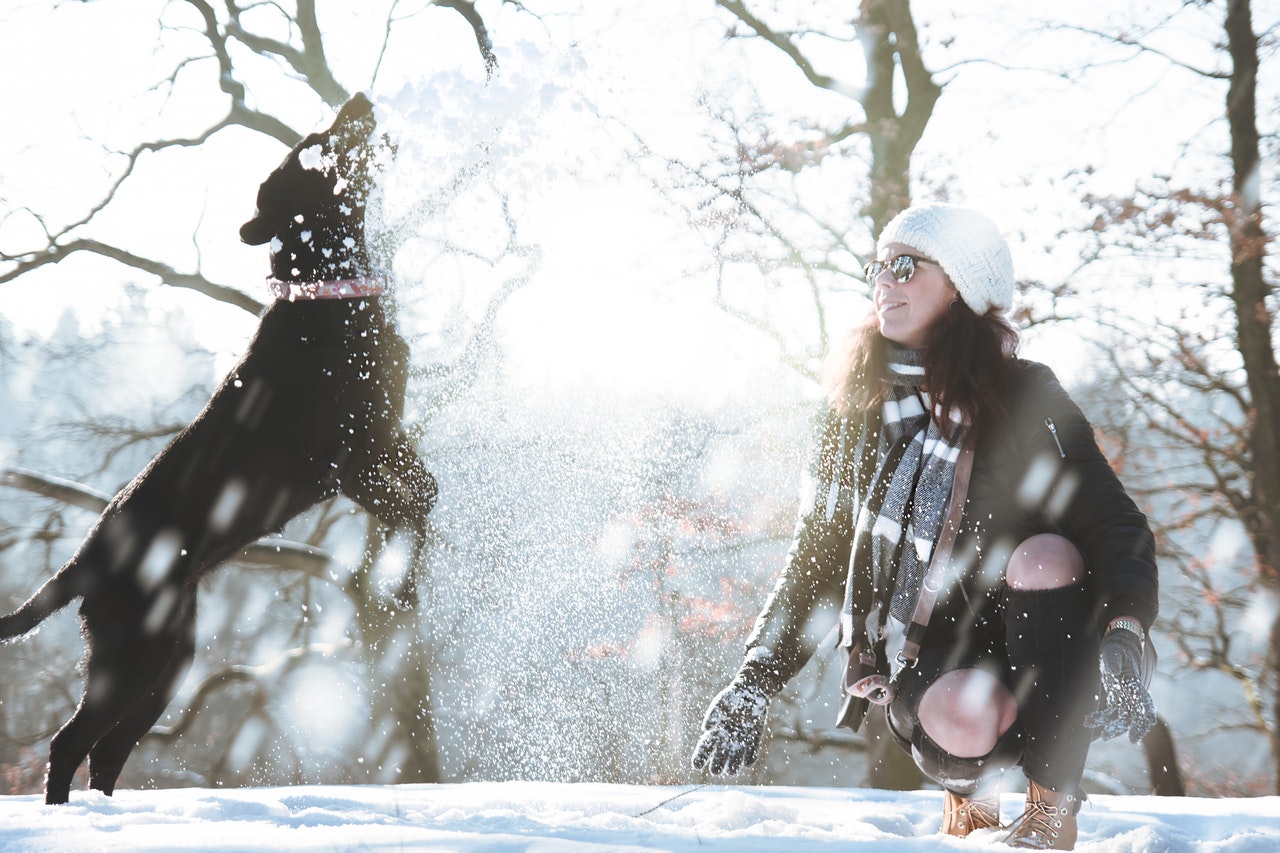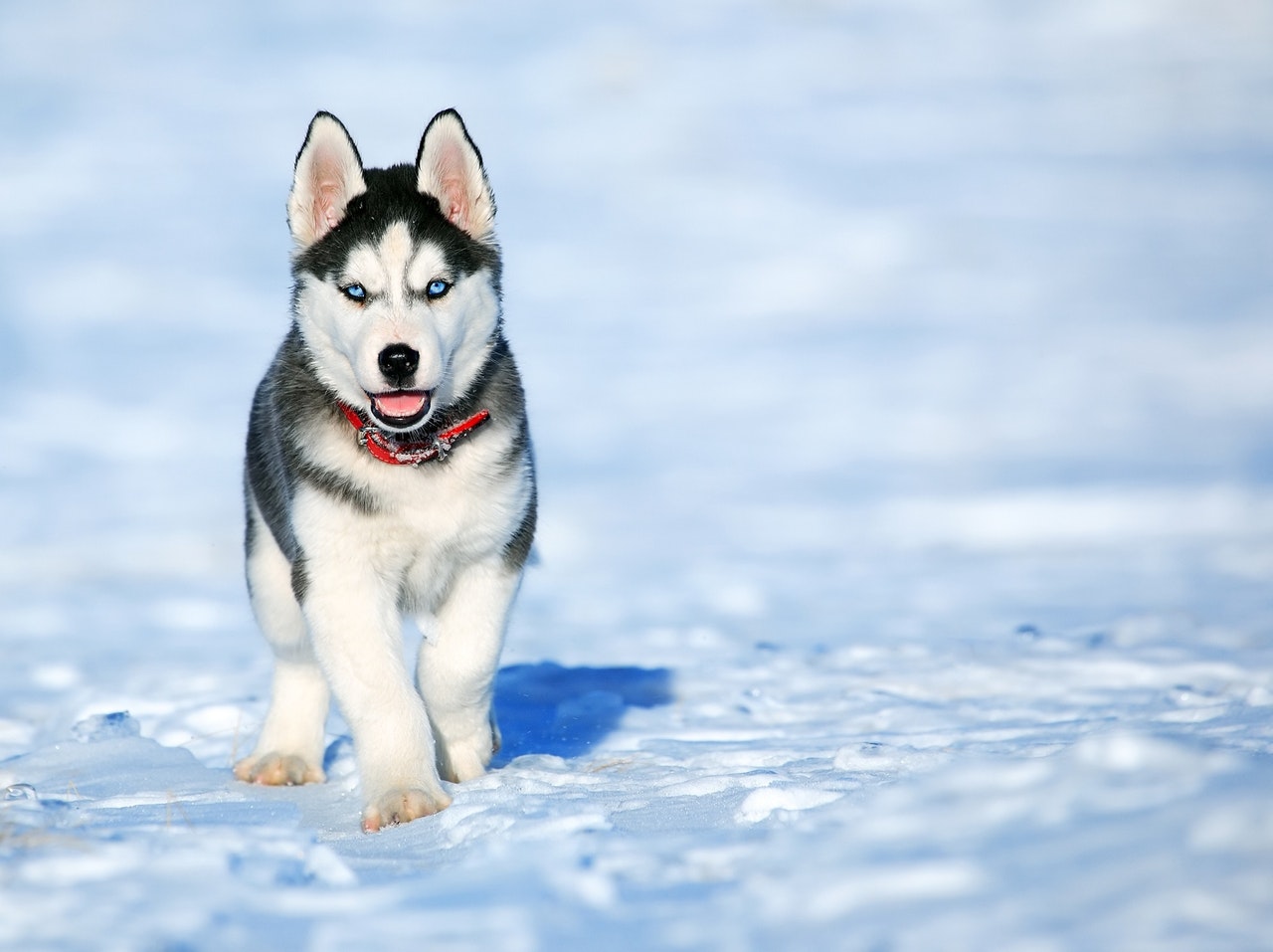2019-12-04

In cold winter temperatures, it is common to wrap ourselves in a thick coat and wear a pair of fur-lined boots. Have you ever wondered how a furry dog withstands the piercing wind? Even if your dog has a natural, thick coat, he may still feel the cold from different directions. In particular, service dogs who accompany their owners and perform special tasks either on cold tarmac or in the snow.
But a simple measure can protect your pooch from the cold. Read on to learn the tricks of keeping your service dog warm.
1. Wear warm clothes
Only when the body is kept warm can enough energy be generated to maintain a healthy state, which is the case in humans and canines. Therefore, it is necessary to dress our pooch in a doggy sweater/jacket and a pair of waterproof shoes/boots, especially if your dog is a small breed or a dog with short hair. In addition, puppies or older dogs have difficulty adjusting their body heat so that an extra layer can keep their bodies and paws warm. Some pooches, however, may be reluctant to wear it. So it is better to train them to wear something from puppyhood. If your service dog gets used to wearing the vest while working, it is likely that he will easily get used to wearing other clothes.
2. Healthy eating
Protein and fat can help the body to produce a lot of energy and heat. So it might be a good idea to add food rich in protein and fat to his daily diet. The amount of food you should feed depends on the shape of your service dog and his exercise. It is advisable to warm the wet food to prevent diarrhea and other stomach problems.
3. Living in a kennel
If you need to leave your dog alone outside the house, it is better to install a waterproof kennel with a furry blanket. However, this would not be suitable for larger dogs. Since the temperatures are lower during the night than during the day, it is not advisable to let your pooch spend the night outside for some reason. Also, some dogs may not like a kennel, due to past experiences.
On the other hand, when you are home, let your pooch stay with you at home. A service dog can save the life of its their owner at any time and in any place, so you should always be within reach of your service dog. If you do not want your pup to disturb you while doing housework, a dog crate can be a good option. Make sure your dog has undergone crate training. Otherwise, forced captivity can lead to separation anxiety and other problems.
So that your pup has a comfortable place in the house, provide him with a suitably large dog bed or soft blankets which will not only keep him warm, but also provide security. Other types of heaters such as stove heating or space heating have can pose a potential hazard to your curious pup. For example, heated pet mats may supply extra heat but burn your pal’s skin. An inadvertent overturning of the stove can cause a fire. Keep an eye on the winter hazards in your home for the safety of you, your pup and your home.

4. Limit the time outdoors and pay attention to harsh weather conditions
Not all dogs can stay outdoors extended periods, including the Alaskan Malamute sled dog, even though they have a thick coat. Unlike humans, dogs must come into direct contact with cold tarmac or deep snow with their paws. Even the nose and ears of dogs are exposed in the cold wind. Over time, the cold would cause frostbites or perniosis in their skin, which can affect service dogs in carrying out their duties.
We recommend that the owners limit their dog’s outdoor time and clean its paws when it comes back into the house. Ice, salt, antifreeze and other toxic chemicals can cause painful cracks and bleeding in the paws. Wiping the paws each time can prevent certain injuries. Regularly trimming the fur on the dog’s paws can reduce ice buildup.
Read more related article: Safety Tips for Walking Your Service Dog in the Snow